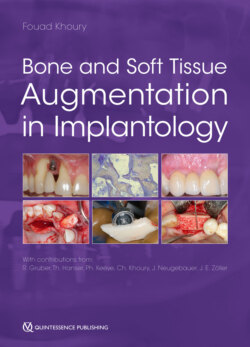Читать книгу Bone and Soft Tissue Augmentation in Implantology - Группа авторов - Страница 42
На сайте Литреса книга снята с продажи.
2.3.2.9 Other metabolic diseases
ОглавлениеThe possibilities of implant therapy are limited by other metabolic diseases that directly or indirectly influence bone regeneration. Here, the diseases of the parathyroid gland should be mentioned because, through hyperparathyroidism, a reduced calcium storage in the bone occurs, which leads to osteoporosis.48
The administration of glucocorticoids has become established in several autoimmune diseases today. Cortisone therapy may lead to increased calcium excretion and thus to osteoporosis or a diabetic metabolic condition. This means per se that there are some risks involved in implant treatment in the case of a disturbance of secondary cortical activity (Addison’s disease), but also in long-term treated bronchial asthma, neurodermatitis, autoimmune diseases such as Crohn’s disease, and ulcerative colitis.4,12 However, the decision to undergo implant treatment should be made according to the individual risk profile, taking into consideration the duration and intensity of the cortisone therapy.
